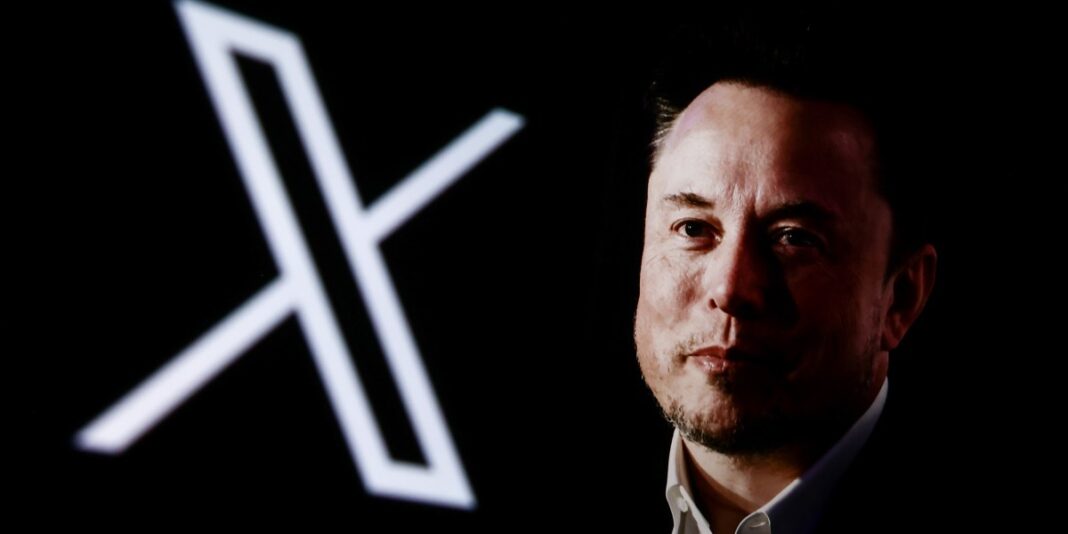Elon Musk’s long-standing battle with OpenAI has a new participant: Apple.
On Tuesday, Apple found itself the latest target of Elon Musk’s legal threats when the xAI CEO accused the tech giant of using unfair means to promote OpenAI’s ChatGPT over his company’s rival Grok chatbot in the App Store. Musk called it an “unequivocal antitrust violation” and threatened to take legal action. OpenAI CEO Sam Altman, who is part of an ongoing feud with the billionaire, quickly weighed in on the dispute, calling Musk’s accusation a “remarkable claim.” He, in turn, accused Musk of manipulating his own platform, X, “to benefit himself and his own companies and harm his competitors and people he doesn’t like.”
Apple has denied Musk’s claims, saying in a statement that the App Store “is designed to be fair and free of bias.”
“We feature thousands of apps through charts, algorithmic recommendations, and curated lists selected by experts using objective criteria,” a spokesperson said in a statement shared with news outlets. “Our goal is to offer safe discovery for users and valuable opportunities for developers, collaborating with many to increase app visibility in rapidly evolving categories.”
X users, and Musk’s own Grok chatbot, were quick to point out that Musk’s claim was undermined by apps like DeepSeek and Perplexity having previously taken the top slot on Apple’s App Store.
The issue may have more to do with Apple’s standing deal with OpenAI’s ChatGPT. Under a mid-2024 deal, ChatGPT is built into Siri and system-wide writing tools on an opt-in basis. Siri asks for permission before sending queries; no OpenAI account is required; and Apple has said it plans to support additional AI providers over time.
Even so, the integration gives ChatGPT a prominent, first-party placement on hundreds of millions of Apple devices, potentially making it harder for rivals like Musk’s xAI to win users’ attention. With Google weaving its Gemini AI into Android, the mobile AI market could increasingly be shaped by default integrations, which could make it much harder for rivals like xAI to compete.
The OpenAI and Apple deal appeared to get under the billionaire’s skin when it was announced, with Musk taking to X to complain: “It’s patently absurd that Apple isn’t smart enough to make their own AI, yet is somehow capable of ensuring that OpenAI will protect your security & privacy!”
Musk went on to threaten to bar all Apple devices from his companies if OpenAI technology was integrated into iOS operating systems.
Apple’s antitrust issues
Apple is currently at the center of several other antitrust battles.
Apple’s App Store is one of the few key platforms for app distribution. Whoever gets visibility there is effectively handed a huge share of new users, which has been a point of contention for some of its competitors.
In the U.S., Apple’s App Store practices have been under scrutiny since 2020 when the company was sued by Epic Games over the removal of Fortnite from the App Store for bypassing its payment system to avoid the 30% commission. A federal appeals court recently refused to pause an order from its long-running battle with Epic Games that forces Apple to allow developers to direct users to outside payment options.
Last year, the Justice Department filed a landmark antitrust lawsuit accusing Apple of monopolizing the smartphone market, alleging that its App Store policies block new developers and stifle innovation. Apple has denied the allegations, saying that its practices foster innovation and consumer choice. In June, the U.S. District Court for the District of New Jersey denied Apple’s motion to dismiss the lawsuit.
In a separate case brought against Google by the Justice Department, Apple’s $15 billion to $20 billion a year deal with the search giant could also be at stake after a federal judge declared in August last year that Google unlawfully maintained a monopoly in internet search, partly through exclusive agreements with companies like Apple. The deal, which made Google the default search engine on its devices, could be disrupted by the remedies currently being weighed by a judge, with JPMorgan analysts warning that a worst-case ruling could cost Apple about $12.5 billion annually.




